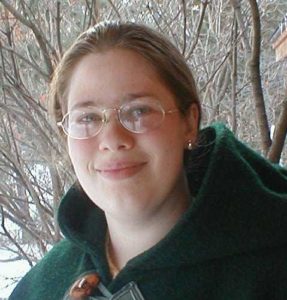Of Distant Places & Daring Sword Fights
 “Far off places, daring sword fights, magic spells, a prince in disguise…”
“Far off places, daring sword fights, magic spells, a prince in disguise…”
Belle’s description of her favorite book in Disney’s Beauty and the Beast has been a long-time favorite quote of mine. For me, it captures the essence of stories I love and of the speculative genre in general.
But as I penned those words today, intending to write about the necessity of truth in fiction, I at last understood why it captures the essence. Even more interestingly, it deals with four heart holes and the truths that fill them:
Far off places: This world is not our final destination. Whether or not we want to admit it, our hearts yearn for a better country. That’s why we restlessly move from place to place and job to job. That’s why we spend thousands of dollars in tourism and travel. This may even be why humanity suffers “the other side has greener grass” syndrome. We desperately want to believe there’s something better than the brown, withered stuff we’re always chomping on.
Speculative fiction offers hope of this other world, a place where wrong will fail and right prevail. After all, where would we come up with the crazy idea of other dimensions and places beyond Earth unless there’s something to it? Even our wildest imaginations are limited by what we know. But even more, spec fiction often promises that though this better world may be far away, it is not impossible to reach.
Daring sword fights: That far off, greener country might not be impossible to reach, but neither will the road be safe or easy. We will face opposition. We will have to fight. Oh, it may not be with swords or light sabers or phasers. That doesn’t make the battle—or the danger—any less real.
Sound like a thought our creature-comfort culture would avoid? Perhaps, on the surface. But in our hearts, we crave purpose. Purpose for living. Reasons to fight. Meaning behind trouble and suffering. Spec fiction’s “sword fights,” whatever form they may take, dares us to believe in something—or Someone—greater than ourselves and to believe picking up that sword and taking that dangerous journey is worthwhile.
Magic spells: While magic in its strictest sense is forbidden by Scripture, the natural realm was never intended to be enough for us. God made us for a relationship with Him; we were created for the supernatural, for life beyond the natural.
Spec fiction acknowledges this in ways few other genres can, admitting what modern science seems determined to disprove: our desire for the supernatural is perfectly natural, able to be filled only by One so completely beyond the natural that He was not created, but simply Is.
A Prince in disguise: “He was in the world, and though the world was made through him, the world did not recognize him.” (John 1:10)
All the other desires—a perfect world where right prevails, a purpose driven by something bigger than ourselves, a supernaturally filled life—culminate here: our need for a Ruler powerful enough to grant our desires and good enough to do so.
Such a Ruler terrifies us. It means we aren’t in control. It means we need to submit to another. It means we would owe Him everything, and being rebels at heart, we don’t want to give up everything. So to get close to us, the Ruler came in disguise, walking as one of us that we may know His love and true nature.
And though two thousand years have passed since then, many today still are wary of such a Ruler, despite their cravings for something more. So where better to meet a Prince in disguise than in those stories of far off places, daring sword fights, and magic spells?
– – – – –
 Chawna Schroeder, winner of the 2008 ACFW Genesis Contest in the Sci-Fi/Fantasy/Allegory Category, spends her days working as a professional liar, better known to most people as an aspiring novelist. She loves spinning stories and fabricating fantastical tales for young adult readers about characters caught between two worlds—not to mention fiction writing provides the easiest explanation for her imaginary friends.
Chawna Schroeder, winner of the 2008 ACFW Genesis Contest in the Sci-Fi/Fantasy/Allegory Category, spends her days working as a professional liar, better known to most people as an aspiring novelist. She loves spinning stories and fabricating fantastical tales for young adult readers about characters caught between two worlds—not to mention fiction writing provides the easiest explanation for her imaginary friends.
When Chawna isn’t working or meeting other novelists’ imaginary friends, you can usually find either her pouring over her studies in biblical Greek and Hebrew or helping others learn discernment, especially in media. Both her writing and studies find an additional outlet at her blog, Imagination Investigation.





























This explains the heart of speculative fiction better than anything I’ve read in a long time. Wonderful article, Chawna.
Ah, Belle…perhaps the most literate Disney heroine (at least, the only one I can recall who gets within arm’s length of a book), and though she’s an “ordinary” girl, she’s probably the best-prepared of any of them when the extraordinary enters her world.
An amazing guest post, well-rounded and thought out.
Excellent article, Chawna. I love the way you used that Bella quote to break down the aspects of speculative fiction that make it so appropriate for the Christian writer. Really an outstanding job. Thanks so much for passing your thoughts along.
Becky
I’m glad I’m not the only one who enjoys Belle, Fred. She remains my favorite Disney heroine to date for many of the reasons you stated, and I think her ordinariness is what prepared her so well for the extraordinary–he who handles small things well can be entrusted with the larger.
And thanks for the generous compliments, Becky and Galadriel. I feared this would be repetitive of what others said, many better than I. So I’m delighted you found something of value in it.
Chawna
Pouring over studies? That would be interesting. Maybe poring?
What a wonderful article, Chawna! I also love how you used Belle’s quote to break down the aspects of speculative fiction. So clever!
P.S. Belle is my favorite Disney princess too. 🙂
It’s been years since I’ve seen Beauty and the Beast, so naturally, i have no recollection of Belle’s description of her favorite book. How perfectly it encapsulates the heart of speculative fiction. You did a very nice job of tying it into the Christian worldview to express its relevancy to those who may think otherwise. In particular, I liked the way you handled magic spells, a subject I think many Christians would struggle with how to treat this properly. Magic can tread a fine line in Christian fiction if not approached biblically.
Thanks for stopping by, Martin, Angela, and Peter–even if I make the occasional spelling error despite proof reading my writing many times. :o)
Magic spells is a difficult topic to handle, Peter, and Christians are right to be wary. But as you implied, it can be handled in a biblical manner. But explaining all the intricacies of that would require another full post (or two or three). One of the days I’ll get around to posting about what I’ve learned…
Chawna
Thanks for the post. “Beauty and the Beast” is one of my favorite movies–both for Belle and for how the prince/beast sins by not helping someone in need (who as Jesus said is the same as refusing to help Him). Yet the beast repents at the end and his humanity is restored. As for Belle, I always thought her the most sensible woman the Disney studios ever created. She certainly had a more level head than any of the other gir;s did in B&N–or in any of the other films. And, as you said, her longing for strange places and (approved) magic helped her through the turmoil of her adventures.
[…] Click here to read the rest of this article. […]